Putting People First
AI for Good
Our AI enterprise empowers communities and creates opportunities by equipping business leaders, policymakers and everyday citizens with all the life-enhancing possibilities of AI grounded in ethics, responsibility and trustworthiness.
IMPACT IN ACTION
The Heart of Ethical AI
At the University of Maryland, our leading AI institutes are shaping the future by developing ethical, transparent and trustworthy AI technologies to ensure that innovation benefits everyone.
The Artificial Intelligence Interdisciplinary Institute at Maryland (AIM) is a collaborative hub for AI, supporting faculty research, offering innovative and experiential learning opportunities, and focusing on responsible and ethical AI technology to advance the public good across industry, government and society. AIM brings together researchers from across disciplines and University of Maryland (UMD) units to conduct research that responsibly advances AI technology.
The Institute for Trustworthy AI in Law & Society (TRAILS) is the first organization to integrate artificial intelligence participation, technology and governance during the design, development, deployment and oversight of AI systems. We investigate what trust in AI looks like, how to create technical AI solutions that build trust, and which policy models are effective in sustaining trust.
Taking on Grand Challenges
The Grand Challenges Grants Program, the largest of its kind ever introduced at the University of Maryland, supports research accelerating solutions to humanity's grand challenges around the globe.

Turning research to impact to protect Maryland communities from the impacts of climate change
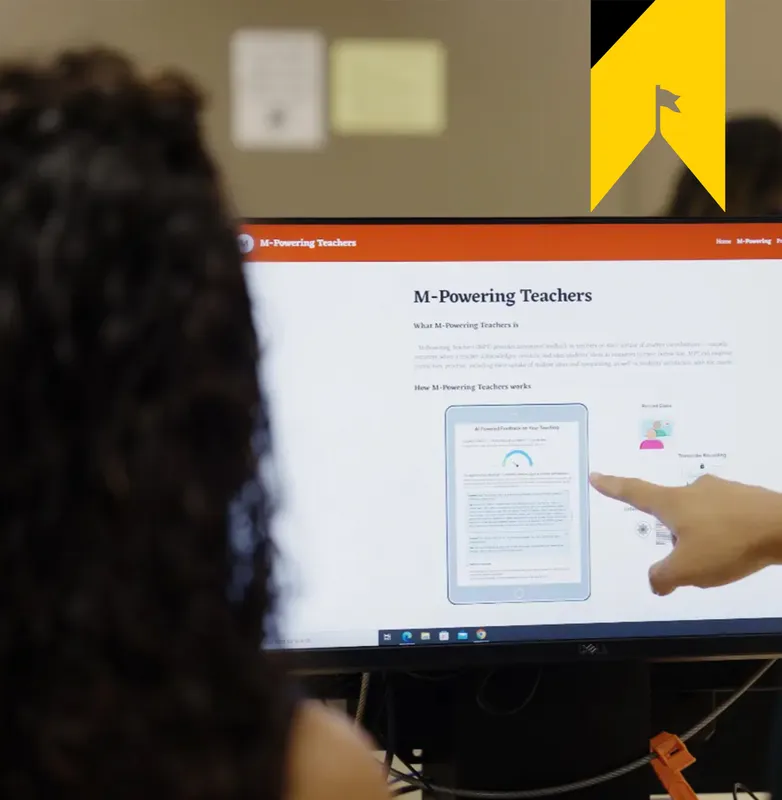
Maximizing the impact of teaching and learning by providing formative feedback to teachers

Working to keep all communities safe from extreme weather in a changing climate
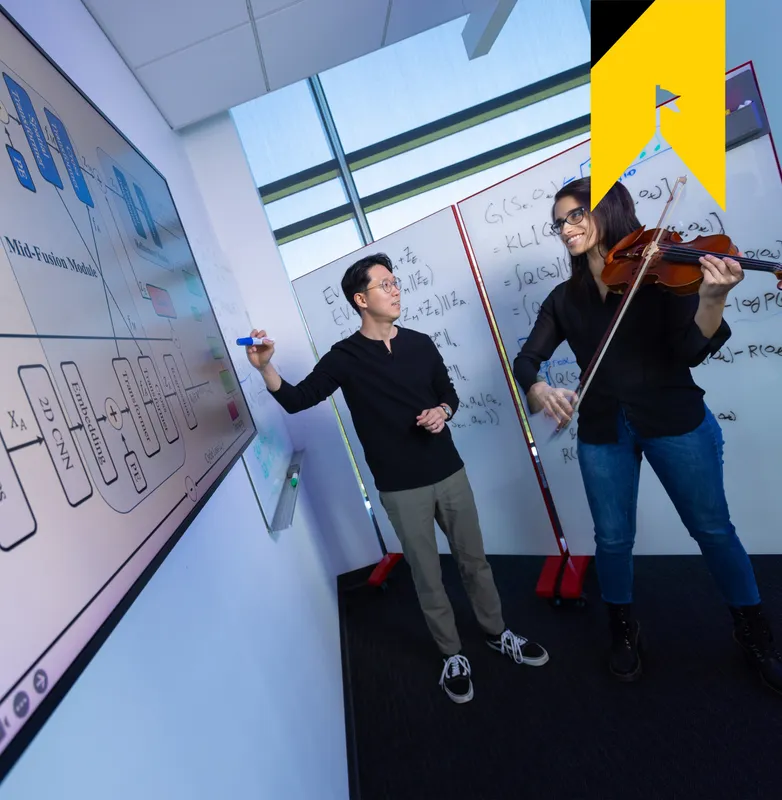
Democratizing access to music education with AI-powered music instruction
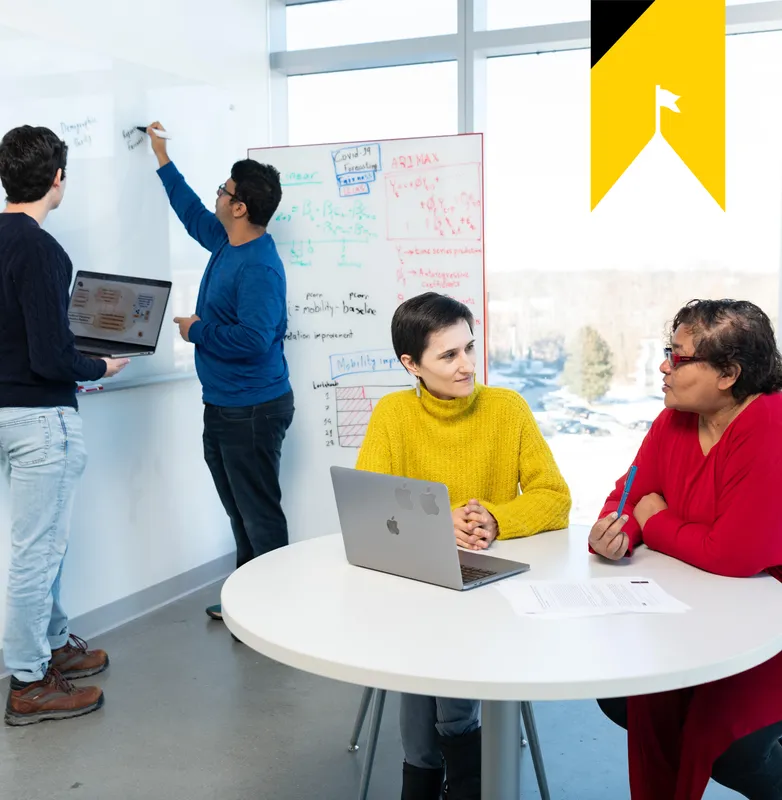
Combining top-down ethics and bottom-up community insights to transform the practice of AI globally
TRAILBLAZING AI FOR A BETTER WORLD
From Maryland to Uganda, University of Maryland researchers are leveraging AI for impact in fields like agriculture, food security, climate resilience, emergency response, public health and more.
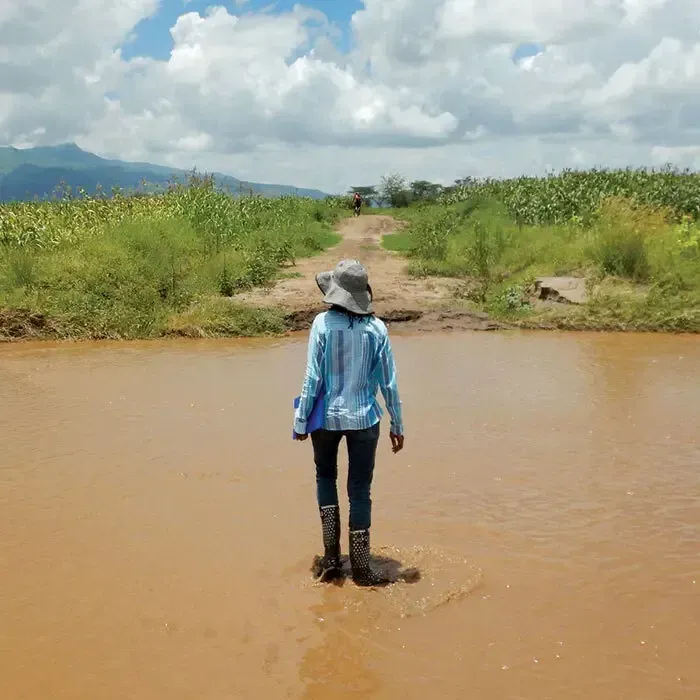
As the lead of NASA Harvest Africa, Assistant Professor Catherine Nakalembe combines on-the-ground intelligence with Earth observations from satellites to help protect African farming and food production.

Researchers used AI and satellite imagery to map 2.5 million artillery craters across a 500-mile arc in Ukraine—helping demining teams prioritize cleanup zones and address the danger of up to 1 million unexploded shells.

An AI-based chatbot in development by University of Maryland researchers is working to take some of the confusion and uncertainty out of parenting.
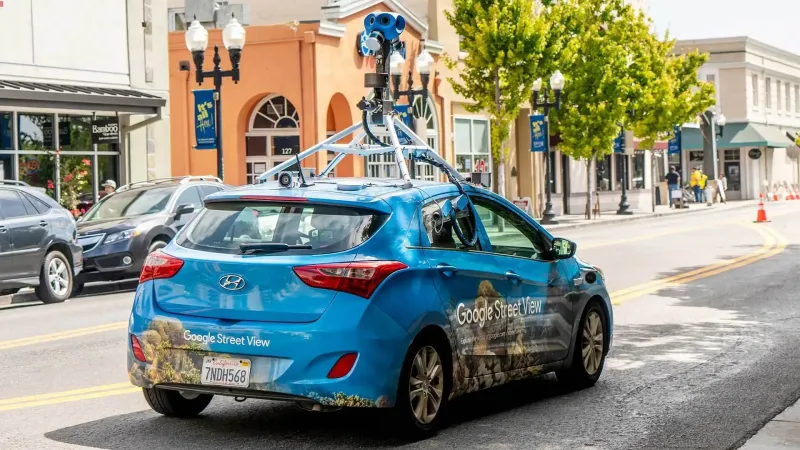
Researchers' AI analysis of Google Street View images predicted household energy costs with high accuracy, paving the way for targeted solutions that lower bills and ease the burden on low-income residents.
An Unlikely Tool to Predict Household Energy Costs on Large Scale
Read more
UMD researchers use AI and robotics to help recover the Chesapeake Bay's struggling oyster population.
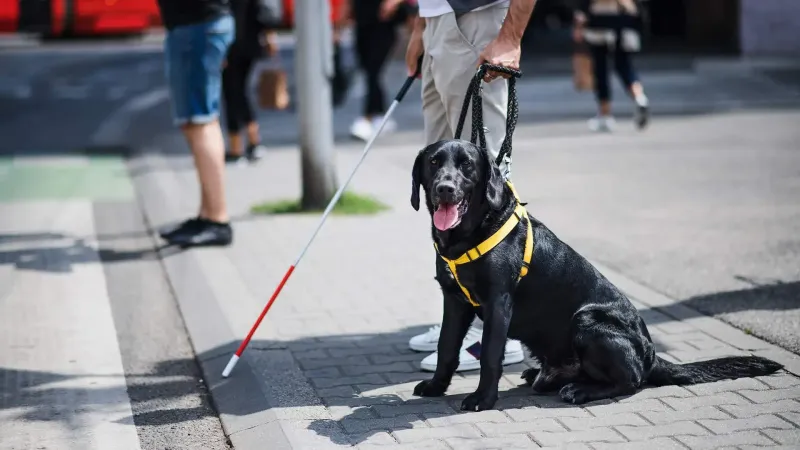
Researchers created BlindWays, an AI-ready dataset capturing real-world 3D motion and descriptions of how blind pedestrians navigate urban environments, improving prediction accuracy and helping autonomous vehicles move more safely around blind individuals.
STUDENT INNOVATION IGNITING CHANGE
Maryland students harness AI to solve problems that matter, building tools, projects and initiatives that drive progress where it’s needed most.

A cross-disciplinary competition in partnership with Capital Area Food Bank draws more than 100 students and 30 teams to present prototypes of voice bots, virtual assistants and other AI-enabled tools to combat food insecurity.
Center for AI in Business, UMD Students Tackle Food Insecurity
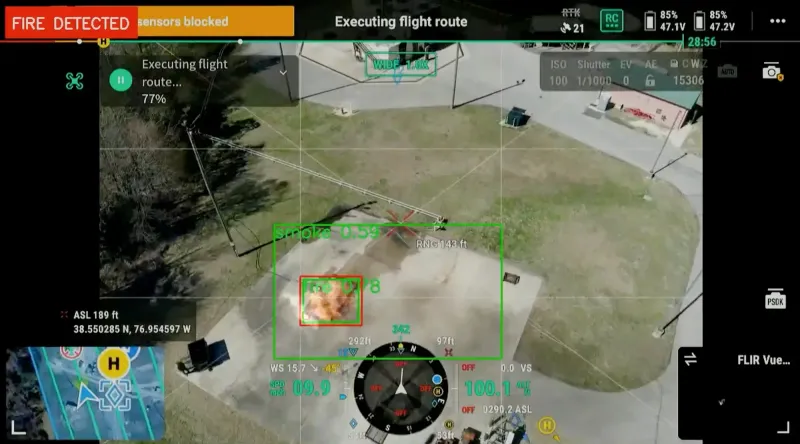
Team Crossfire, a partnership between xFoundry@UMD and the Department of Fire Protection Engineering, is spearheading the creation of AI-powered drones to automatically detect, assess and suppress wildfires before they spread.

As part of the DARPA Triage challenge, UMD students work with faculty to develop autonomous drones and robot 'dogs' to deliver aid during disasters that are difficult for humans to safely navigate.
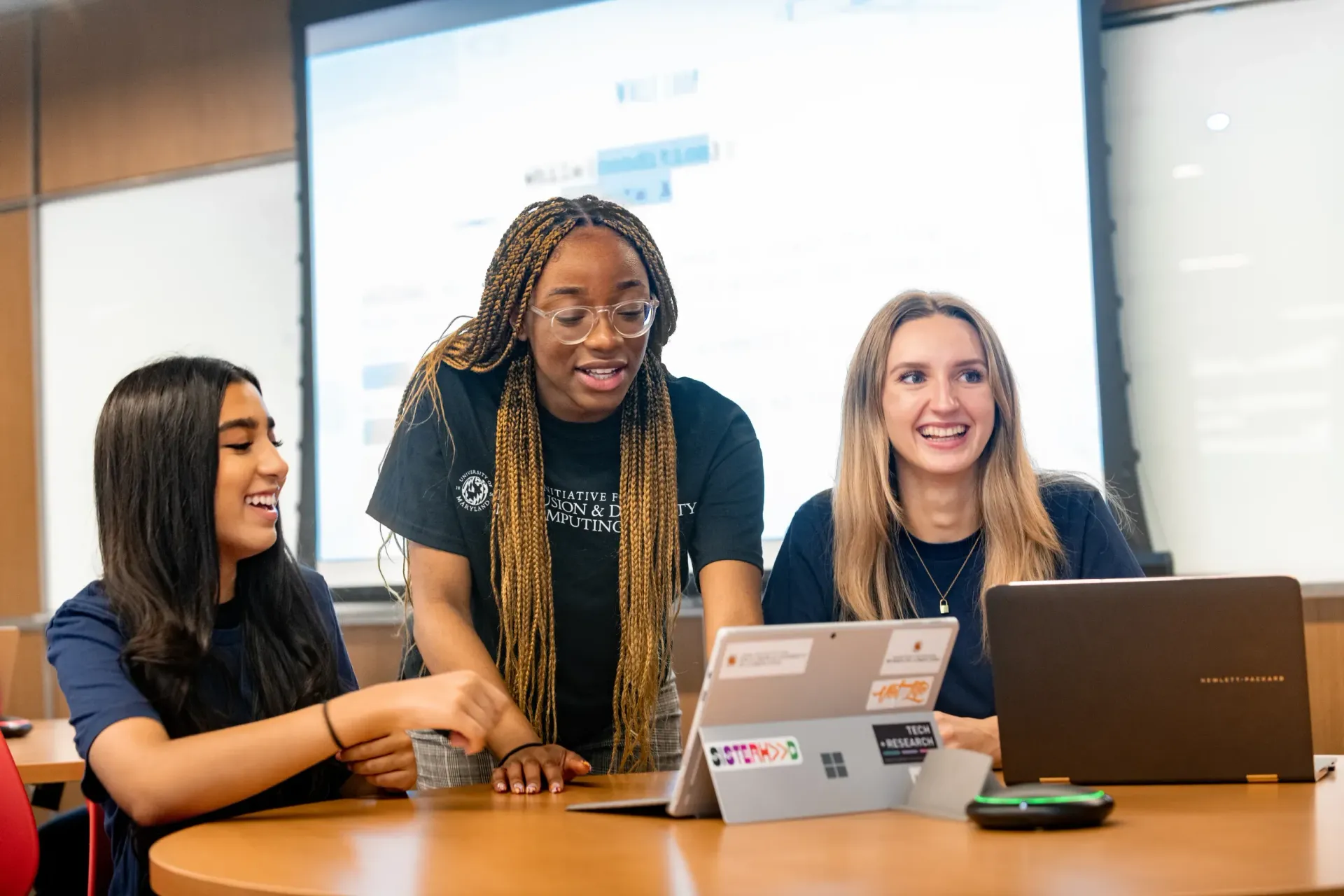
2500+
K-12 students served through summer and school-year computing programming
19%
Increase in women in computing majors at UMD since 2014
Building Belonging Through Computing
Through K–12 outreach and undergraduate support, we’re expanding who gets to participate and thrive in computing. From the CompSciConnect camp for middle schoolers to RESET Scholars and NCWIT Aspirations Awards, our programs create pathways that foster belonging, creativity and success in AI and computing.
Partner with us
Interested in partnering with UMD faculty to uncover new breakthroughs, enrich our student experience or make an impact on our world? Reach out to AIM to get started.